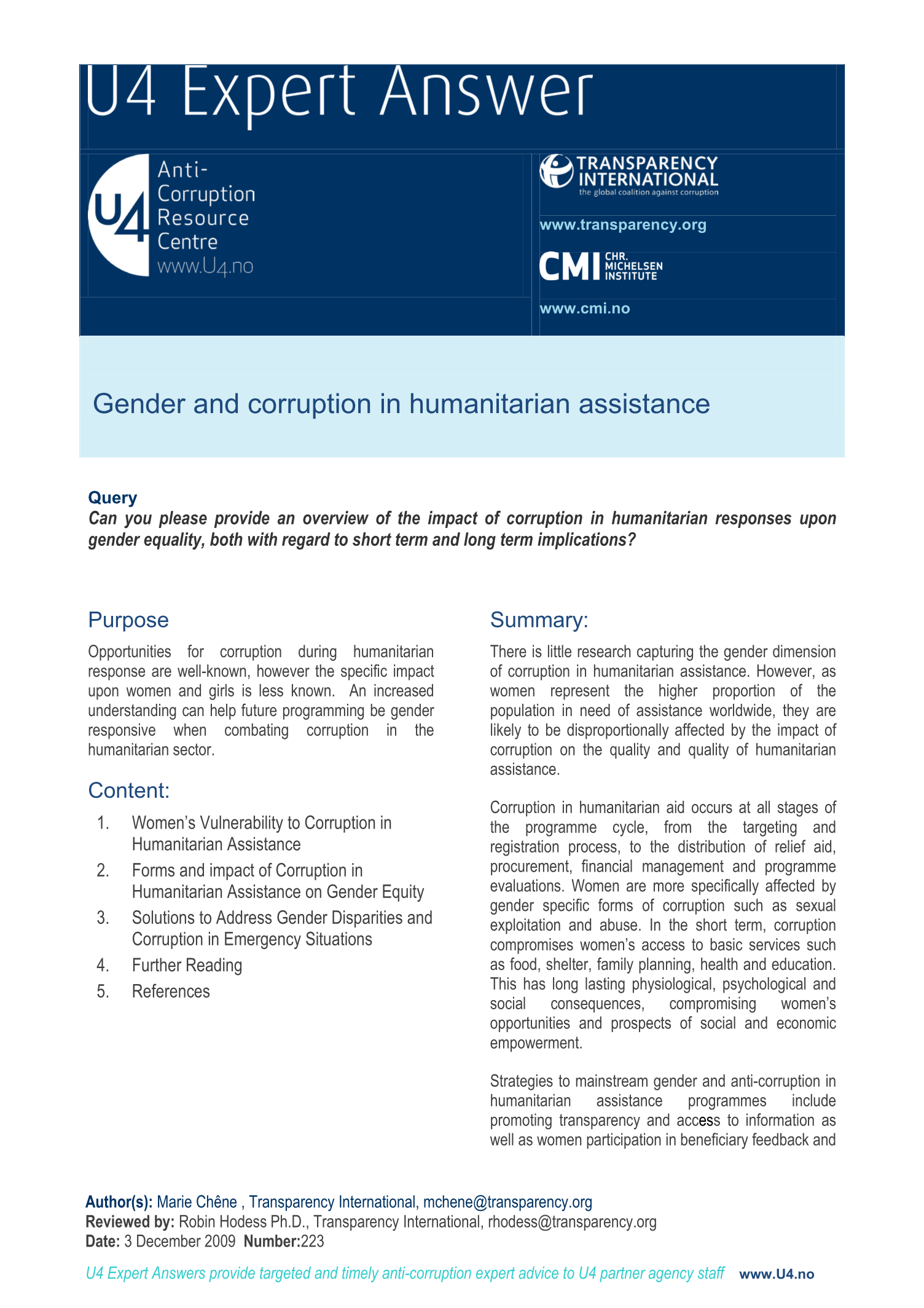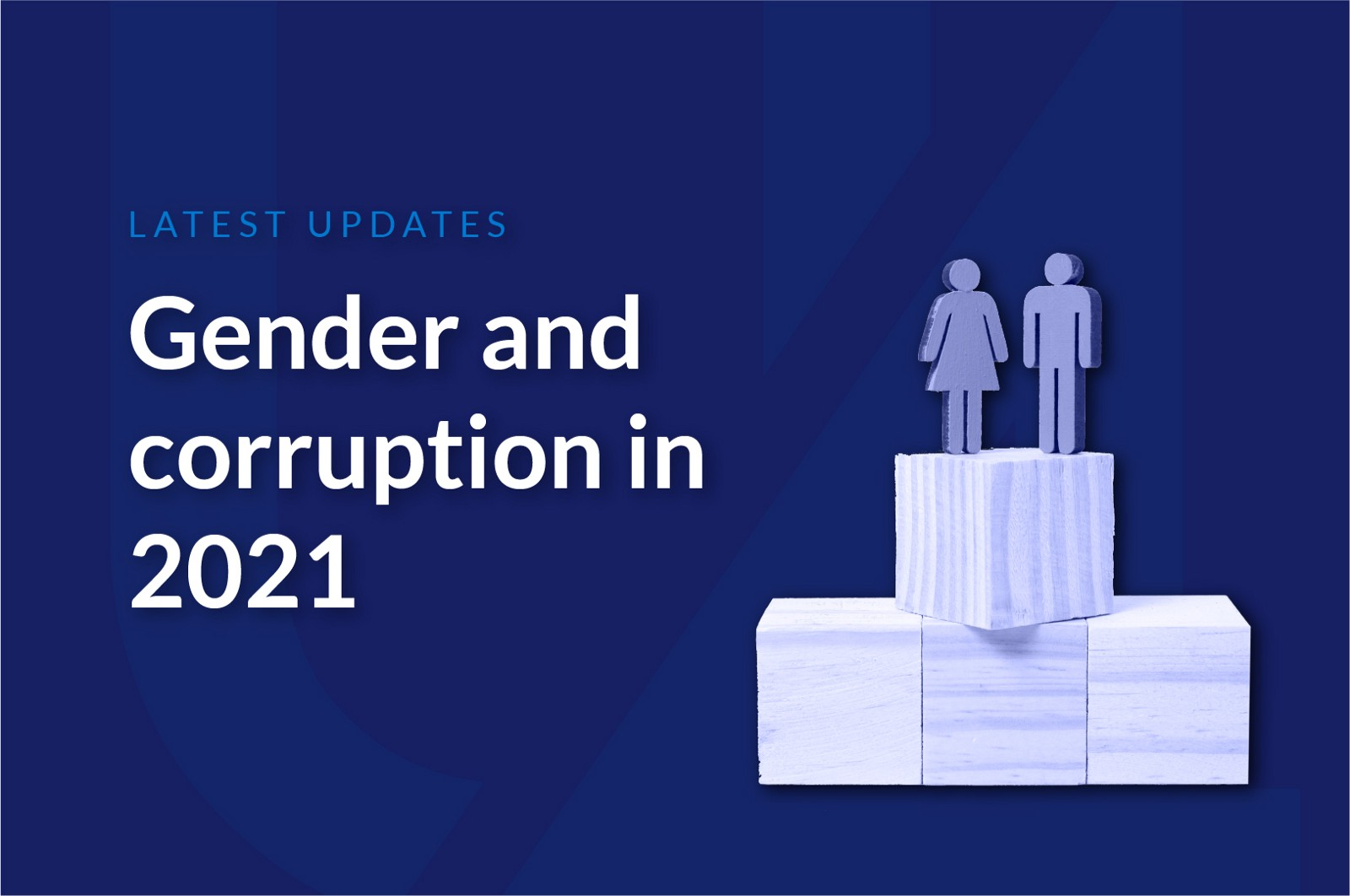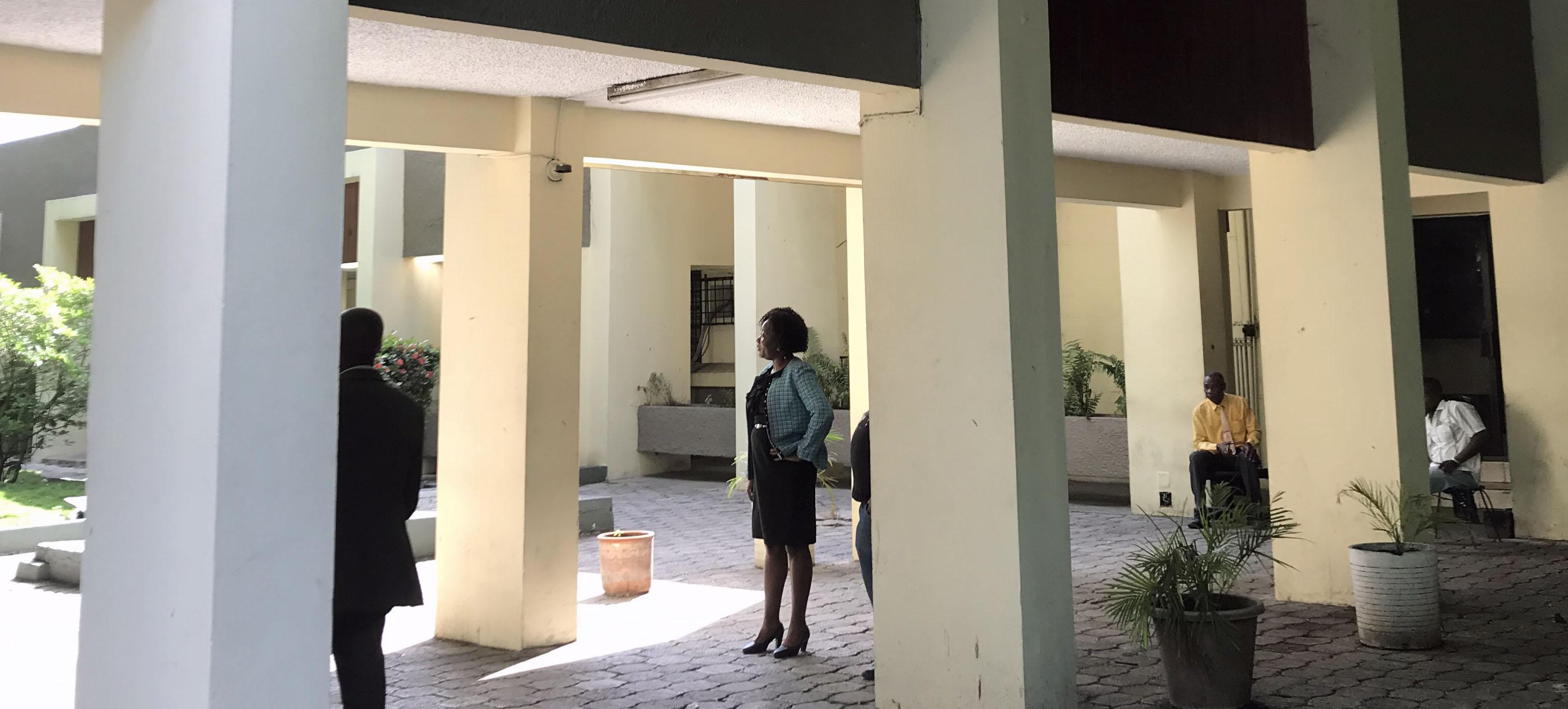U4 Helpdesk Answer
Gender and corruption in humanitarian assistance
Corruption in humanitarian aid occurs at all stages of the programme cycle, from the targeting and registration process, to the distribution of relief aid, procurement, financial management and programme evaluations. Women are more specifically affected by gender specific forms of corruption such as sexual exploitation and abuse. In the short term, corruption compromises women’s access to basic services such as food, shelter, family planning, health and education. This has long lasting physiological, psychological and social consequences, compromising women’s opportunities and prospects of social and economic empowerment.

Cite this publication
Chêne, M. 2009. Gender and corruption in humanitarian assistance. Bergen: U4 Anti-Corruption Resource Centre, Chr. Michelsen Institute (U4 Helpdesk Answer Helpdesk 223)
Disclaimer
All views in this text are the author(s)’, and may differ from the U4 partner agencies’ policies.
This work is licenced under a Creative Commons Attribution-NonCommercial-NoDerivatives 4.0 International licence (CC BY-NC-ND 4.0)


